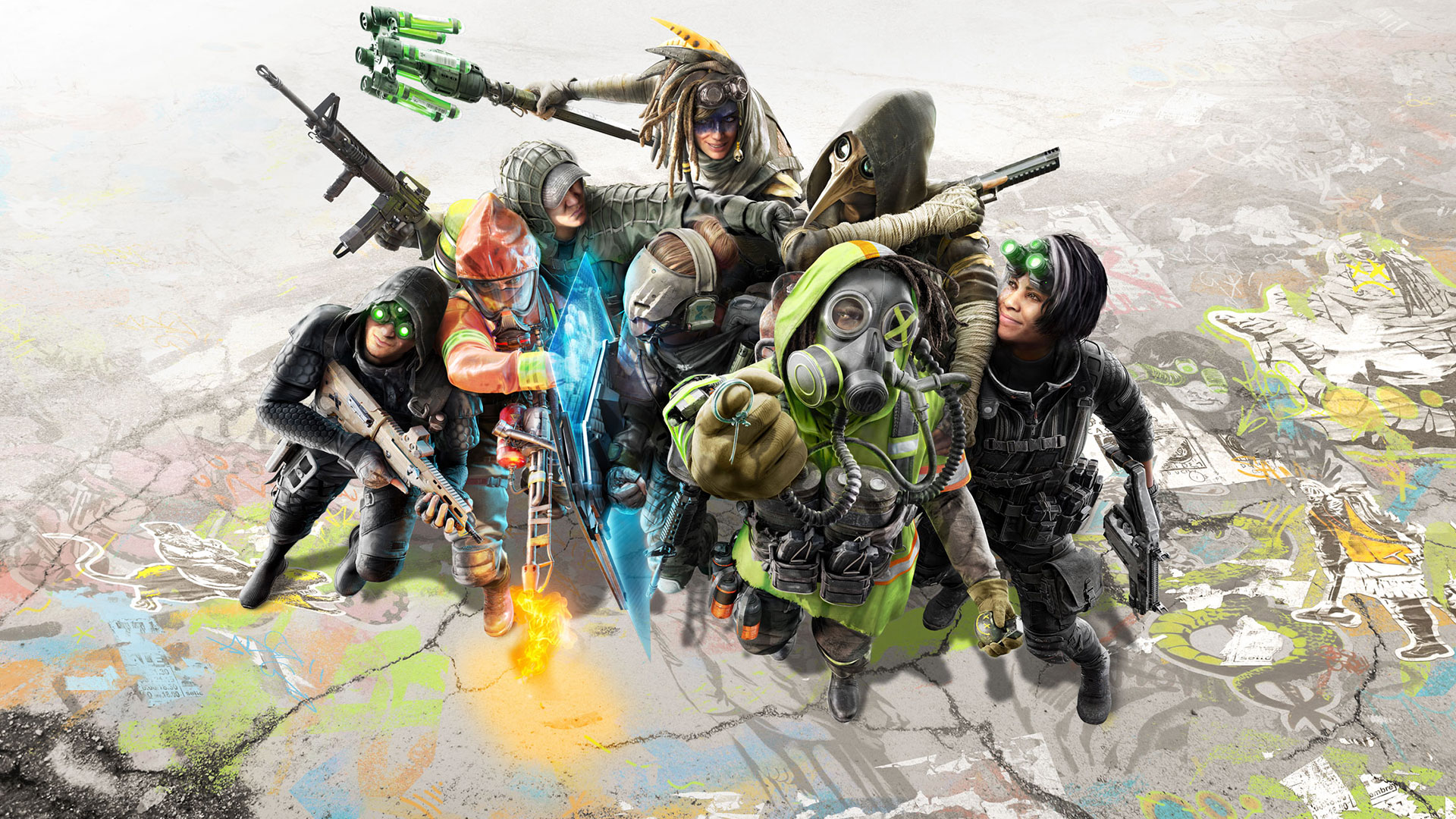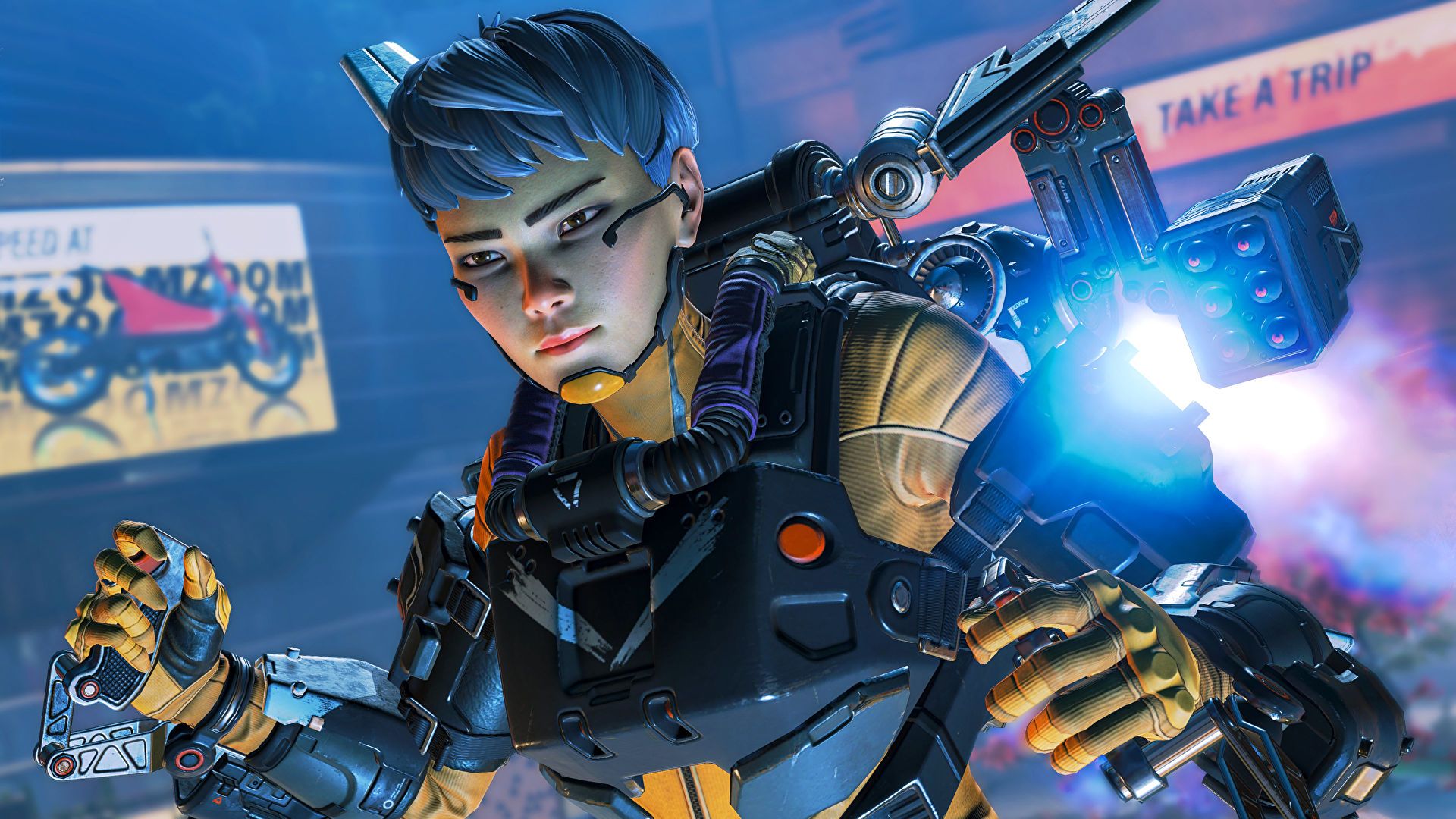
On July 19th, Ubisoft finally unveiled its next big PvP project, Tom Clancy’s XDefiant. You could be forgiven for not remembering it – on the Ubisoft North America channel, it has an overwhelming Dislike ratio of 24,000 to 12,000 Likes. As a free-to-play multiplayer title, XDefiant mixes together the “Defiants” – rambunctious factions from other Tom Clancy properties like the Wolves from Ghost Recon Breakpoint and the Cleaners from The Division – into 6v6 matches. How does Echelon fit in, since it was kind of good, then kind of bad and kind of good in the Splinter Cell series? Good question but I digress.
The initial backlash was against the game’s punk rock, mosh-pit aesthetic with lots of colorful graffiti, particularly in trying to pass it off as fitting for Tom Clancy’s genre of espionage thrillers. There was those who hated that Splinter Cell and Sam Fisher still hadn’t received a proper sequel while others looked at XDefiant as a cash-grab, attempting to cash in on the hero shooter trend (but leaning closer to Valorant in terms of realistic guns). To be fair, the game hasn’t received a release date and will have a series of closed technical tests first before its full launch. It could very well end up being a fun game, even if it doesn’t seem to break any boundaries or innovate on its own.
So instead, I’d like to examine the necessity of something like Tom Clancy’s XDefiant. Immediately, one could argue that an idea like this makes sense. In the hero shooter genre, even a game like Overwatch which hasn’t had any huge updates or new heroes in more than a year saw 10 million new players joining in 2020. In its first year, Valorant hit 14 million players and even managed to beat out Valve’s Counter-Strike: GO in revenue earned this past January. Even Rainbow Six Siege, which mixes tactical shooting with more grounded heroes and abilities, is still popular with over 75 million players as of July 2021.
From the outset, having a 6v6 shooter with realistic gunplay and abilities but with faster-paced action like Call of Duty isn’t the worst idea (especially if it’s free to play). It could serve as another strong revenue stream for the company which hasn’t made a huge push into the competitive FPS market outside of Siege. The fact that it’s only coming to Ubisoft Connect and not the Epic Games Store, at least initially, shows that Ubisoft wants full returns on revenue from the outset. It even has recognizable properties like Ghost Recon, Splinter Cell and The Division. Surely it should appeal to fans of those franchises!
It’s important to note a few things though. Just because a hero shooter like Overwatch was a huge success doesn’t mean that every other imitator fared just as well. Paladins, Lawbreakers, Battleborn, Rocket Arena, Dirty Bomb, Quake Champions – the list of failures and/or failing titles over the years is pretty significant. Granted, they all didn’t have the marketing might of Activision Blizzard or even a Ubisoft behind them. Surely even a big-name publisher could make a new IP with new characters a success. Just look at Apex Legends.
But with context, it’s clear that the success of Apex wasn’t simply a case of “published by EA.” In fact, you could argue that in a market crowded with other battle royale titles, including big names like Fortnite, that Respawn Entertainment was taking a risk (especially when its Titanfall titles weren’t exactly the biggest successes). Nevertheless, taking a risk and simply dropping the title on players while offering excellent gameplay, revolutionary new features like the pinging system, and an overall strong level of polish helped it stand out. Even when player numbers and engagement dropped, Respawn adapted well and put out compelling updates and worthwhile new features, despite some of its monetization practices like Heirloom Items being less than savory.
On the other hand, look at Hyper Scape, Ubisoft’s own battle royale title. It followed many of the same tenets as Apex Legends – a stealth release, a huge marketing campaign that saw numerous high-profile streamers gaining access and bumping up the numbers on Twitch thus generating tons of buzz, you name it. Despite all of that, Hyper Scape quickly floundered and within just a few months, Ubisoft confirmed that it had already failed to meet expectations. Cue the usual overhaul of the gameplay and systems which have failed to really spark interest since then. No amount of new content, changes and “listening to feedback” has proven capable of salvaging the game. You could blame this on the gameplay and polish not being the best or the fact that its competitors are leagues ahead and dominate a fair share of the market already.
Then there’s Tom Clancy’s Elite Squad, a mobile RPG that interestingly featured a crossover of several Ubisoft properties like Ghost Recon, The Division and Rainbow Six Siege. Clearly meant to cash in on the success of games like RAID: Shadow Legends, its servers are set to shut down on October 4th. Unlike Hyper Scape, it didn’t make a huge social media splash. Instead, it was criticized heavily for being little more than a cash grab and then laid low before dying out.
It’s not like Ubisoft always fails when it comes to chasing trends. Brawlhalla is a great example – as a 2D fighting game with gameplay akin to Super Smash Bros., it’s garnered over 50 million players as of March 2021. There’s even an esports scene with a prize pool of over $200,000 and it still receives significant updates to this day, even if it’s not commanding the spotlight at Ubisoft Forward events and the like. But again, context is important – how many Smash Bros.-like titles were available on the PC platform before Brawlhalla came along? It may have been difficult to measure the audience for the same but the game’s success can’t be denied even with fairly minimal competition from better games like Rivals of Aether.
XDefiant isn’t nearly as lucky, having to go up against more established franchises that have way more entrenched followings (not to mention its own Rainbow Six Siege). It’s clear that Ubisoft is trying to cater to fans of each title by offering similar looking maps – with two being shot-for-shot remakes of areas from The Division series – and characters with familiar abilities. Also, unlike Hyper Scape, it seems to be spending a significant amount of time in closed beta testing first with a release window yet to be hinted at. Again, it doesn’t mean much if the core gameplay isn’t solid but that’s something that only be ascertained once more time has been spent playing it.
At the end of the day, you could argue just as much for the necessity of a new free-to-play competitive shooter as you could against it. It’s always nice to have more choices and competition that can push other titles to try new things and stand out. But does Tom Clancy’s XDefiant actually possess its own unique identity to help it stand out in the crowd? Is it going to be another try-and-forget shooter that pushes microtransactions and battle passes, floundering in its initial release and prompting commitments to improve before either steadily finding its own niche, becoming a massive success or just slowly fading away? Strong marketing and a mosh-pit aesthetic that preaches defiance – masking the fact that the primary cast doesn’t have any real distinct characters or identities at this point – can only get you so far and even if XDefiant has its own unique take on the genre, it may be a case of “too little, too late.”
Note: The views expressed in this article are those of the author and do not necessarily represent the views of, and should not be attributed to, GamingBolt as an organization.
















